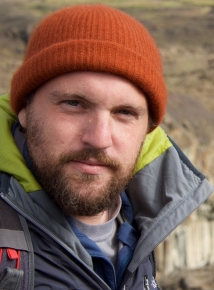Romain JolivetEnseignant-chercheur au laboratoire de géologie de l'Ecole Normale Supérieure (LG-ENS - ECCETERRA)
Project: Geodetic data Assimilation: Forecasting deformation with InSAR (GEO-4D)
Recent space-based geodetic measurements of ground deformation suggest a paradigm shift is required in our understanding of the behaviour of active tectonic faults.
The classic view of faults classified in two groups – the locked faults prone to generate earthquakes and the creeping faults releasing stress through continuous aseismic slip – is now obscured by more and more studies shedding light on a wide variety of seismic and aseismic slip events of variable duration and size. What physical mechanism controls whether a tectonic fault will generate a dynamic, catastrophic rupture or gently release energy aseismically? We are missing a statistically significant fraction of slow slip events on continental faults and this impedes our ability to understand the physics of seismic and aseismic fault slip. Therefore, answering such a fundamental question requires a tool for systematic and global detection of all modes of slip along active faults.
The launch of the Sentinel 1 constellation is a game changer as it provides, from now on, systematic Radar mapping of all actively deforming regions in the world with a 6-day return period. Such wealth of data represents an opportunity as well as a challenge we need to meet today. In order to expand the detection and characterization of all slip events to a global scale, we will develop a tool based on machine learning procedures merging the detection capabilities of all data types, including Sentinel 1 data, to build time series of ground motion.
Laboratoire
Laboratoire de géologie de l'École normale supérieure (LG-ENS, CNRS / ENS Paris
